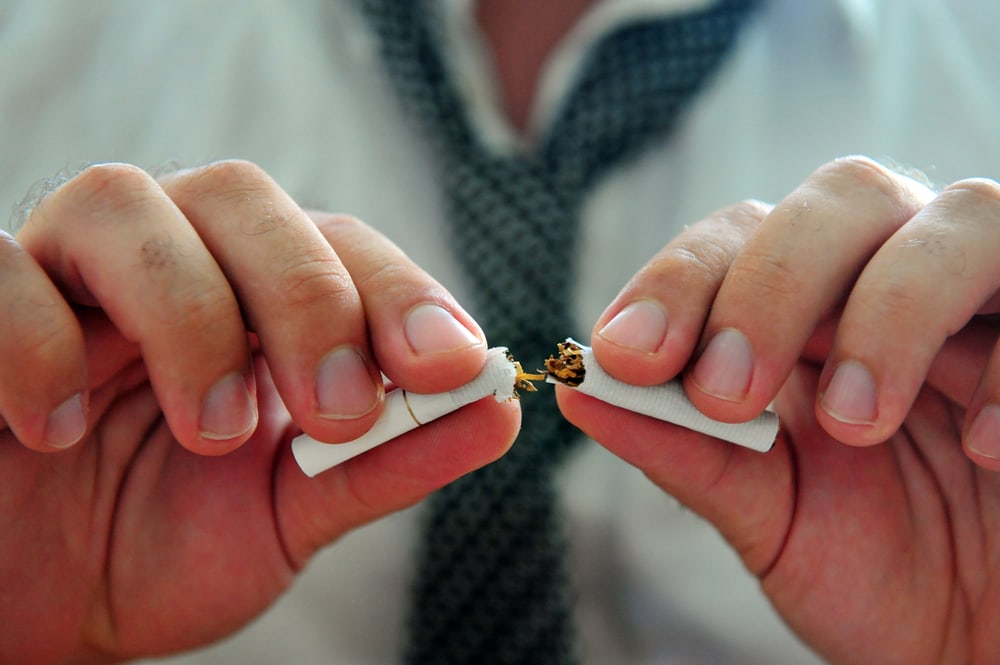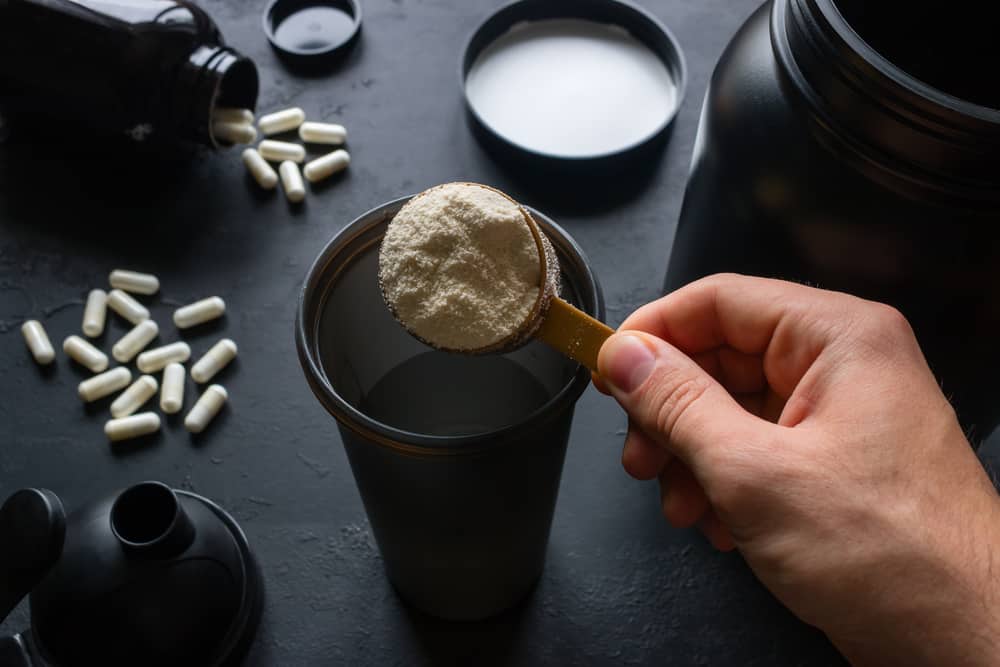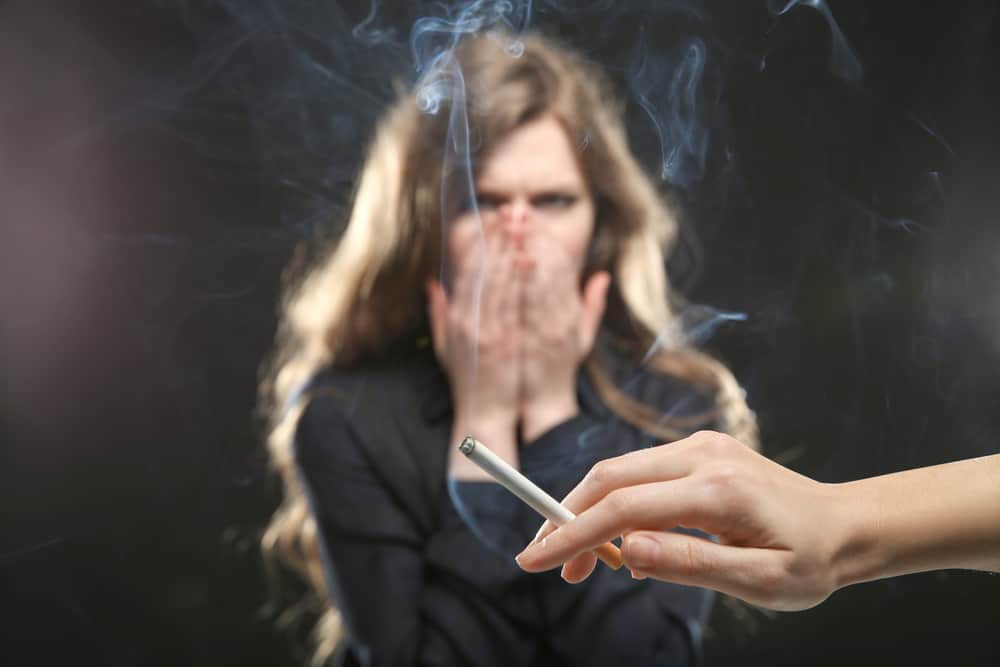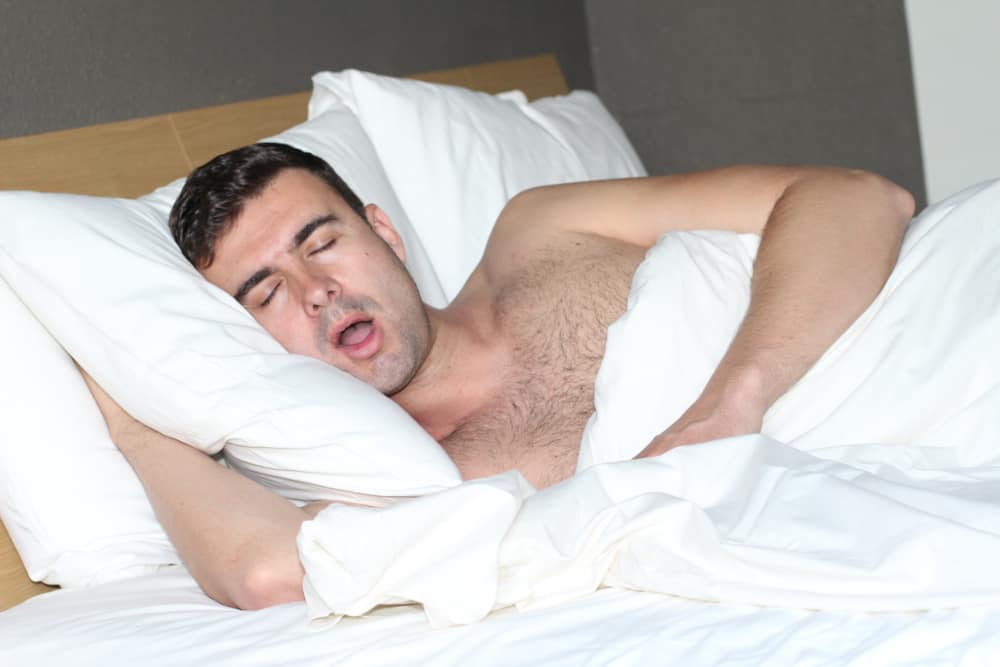Contents:
- Medical Video: Stop Smoking : How to Stop Smoking With Medications
- How Bupropion works as a medicine to stop smoking
- Who can't use Bupropion?
- How effective is Bupropion as a medicine to stop smoking?
- What side effects might occur due to bupropion?
- Why do I still want to smoke even though I have taken Bupropion?
- So, do I need Bupropion to stop smoking?
Medical Video: Stop Smoking : How to Stop Smoking With Medications
Bupropion is a type of drug sold on the market in several brands such as Zyban®, Wellbutrin®or Aplenzin®. This is a prescription anti-depressant drug in the form of extended-release which reduces the symptoms of nicotine cravings.
Bupropion does not contain nicotine. This drug works on chemicals in the brain that are related to the desire to use nicotine. Bupropion is often prescribed as a medication to stop smoking, and works best if it starts 1 or 2 weeks before you stop smoking. The most commonly used bupropion dose is one or two 150 mg tablets per day.
How Bupropion works as a medicine to stop smoking
Bupropion is a pill that you drink to reduce your desire to use tobacco. The way it works is not fully known. Bupropion does not contain nicotine and does not help you stop smoking in the same way as nicotine replacement therapy. But like other drugs, Bupropion reduces nicotine boost and withdrawal symptoms (nicotine cravings).
Doctors also prescribe Bupropion to treat depression. However, Bupropion's ability to help people stop smoking is not related to antidepressant action. This medication can help you stop smoking even if you don't experience depression.
You should take Bupropion every day, starting 1 or 2 weeks before quitting smoking. This will accumulate drug levels in the body. You must take Bupropion for 7 to 12 weeks after stopping using tobacco. You can drink it for 6 months to 1 year.
Who can't use Bupropion?
Bupropion is used in people who smoke 10 or more cigarettes a day, and who are at least 18 years old. Doctors prescribe this medicine to help people when they stop smoking.
However, you may not use Bupropion if:
- You have used other drugs that contain Bupropion (like Wellbutrin)
- You have seizures or other medical conditions that make you susceptible to seizures
- You use monoamine oxidase inhibitor (MAOI)
- You have an eating disorder
- You have an alcohol addiction problem
How effective is Bupropion as a medicine to stop smoking?
Bupropion works as well as nicotine replacement therapy (NRT). Using Bupropion along with nicotine replacement therapy (such as nicotine patches, chewing gum, or inhalers) can increase your chances of success.
If used according to instructions, Bupropion can reduce:
- strong urge to use nicotine
- irritability, anxiety, anxiety
- difficult to concentrate
- feeling unhappy or depressed
What side effects might occur due to bupropion?
Common side effects from using bupropion to stop smoking are:
- Dry mouth, experienced by 1 in 10 people who use Bupropion.
- Sleeplessness (insomnia). If you use morning and evening doses, using evening doses in the afternoon can help with sleep problems. Take the afternoon dose at least 8 hours after the morning dose.
In more than 70 out of 100 people who use Bupropion, the above side effects disappear within one week after they stop using this drug. Only about 10 out of 100 people should stop using Bupropion because of these side effects.
There is a small risk for seizures when using Bupropion. This risk increases if you have experienced seizures in the past.
Why do I still want to smoke even though I have taken Bupropion?
Encouragement or strong desire to smoke can be caused by withdrawal symptoms (sakau). However, you can also feel the urge or strong desire to smoke when you feel in a situation where you usually smoke.
Certain things that can trigger the desire to smoke, such as:
- a place where you usually smoke, like at home, office or bar
- people who usually smoke with you, like family or friends, or when you are alone
- habits or routines in which you are used to smoking, such as when drinking coffee or alcohol, talking on the telephone, after eating, or when you want to relax
- emotions, such as anger, boredom, feeling depressed or hurt, or for some people, when they are unhappy
Stopping medications works best if you also reduce the trigger for cravings. You need to understand why you smoke to be able to plan how to deal with the situation. The people who are most successful in resisting the strong urge to smoke use a series of strategies to help them. Making your home smoke-free and disposing of cigarettes at home and your car is a strategy that can help.
So, do I need Bupropion to stop smoking?
Like other treatments, Bupropion works best if the drug is included in a program that includes setting a stop date, having a plan to deal with things that get you cigarettes (triggers for smoking), and getting support from doctors, counselors, and support groups.
Using Bupropion along with nicotine replacement therapy (such as nicotine patches, gum, or inhalers) can work better than using it yourself. Consult your doctor before you combine Bupropion with nicotine replacement therapy.
If you are pregnant, breastfeeding, or planning to become pregnant, do not use drugs unless prescribed by a doctor. Some drugs can harm the baby. This includes prescription drugs and over-the-counter medicines, vitamins, herbs, and supplements. Also, make sure that all your doctors know that you are pregnant, breastfeeding, or planning to become pregnant.
Hello Health Group does not provide medical advice, diagnosis or treatment.












